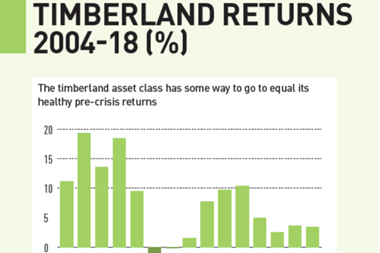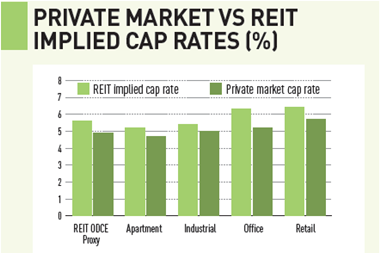Against the backdrop of a weakening global economic outlook, rising real estate prices are weighing on the home-buying market in the eurozone — but there is little more that the European Central Bank (ECB) can do to ease credit, an economist told real estate investors yesterday.
Speaking at the IPE Global Conference & Awards 2019 in Amsterdam, Elwin de Groot, chief international economist and eurozone strategist at Rabobank said: “Clearly things are looking more challenging.”
In the US, the growth rate for investment in dwellings had been slowing for several years, he said, saying this was one reason why Rabobank was forecasting a recession there next year.
“But I see some parallels in the eurozone where we see investment activity in dwellings is actually gradually slowing down.”
This was not because interest rates were going up — which was a factor behind the US slowdown — but because rising house prices combined with sluggish income growth were starting to weigh on affordability, De Groot said.
“To draw the parallel with the Netherlands, for example, we see that the expenditure on housing has bottomed out now and is starting to rise, and that simply is because although we still have record-low mortgage rates, and to some extent rising incomes, we’re also facing rising real estate prices and stricter borrowing conditions” he said, noting that Dutch property prices rose 9% in 2018.
“That’s weighing on the market and therefore we expect in the coming years, we will see a growing amount of potential buyers facing financial constraints in borrowing for a house,” he said.
While central banks had to some extent rescued the real estate market following the relatively significant increase in risk premiums in the last quarter of 2018, de Groot questioned whether they would be in a position to do so again if the economy fell into a further slowdown next year.
“I would say there’s now a clear possibility that those risk premiums would increase, and also the banks are becoming more cautious in this environment… in loan transactions for both housing and non-financial corporates,” he said.
“In a way we have reached a bit of a crossroads where things are looking more challenging, because on the one hand interest rates are staying low — and that’s beneficial for the sector — but on the other hand we run the risk that at some point the weakness in the economy is going to overshadow the positive rates environment.”
Asked what the ECB and EU governments could do to make a coming recession less severe, De Groot said this was one of Rabobank’s great concerns.
“They will probably do what they have been doing in a recent slowdown – that’s doing a little bit more QE – but they are really limited in that,” he said.
Although governments do have budgetary room for fiscal stimulus in a number of eurozone countries, this issue could create new tensions, he warned, because countries that did have this leeway were not those with the need to utilise it.
“The room is in Germany and the Netherlands but the need is in Italy and France where budgetary room is very limited,” he said.












